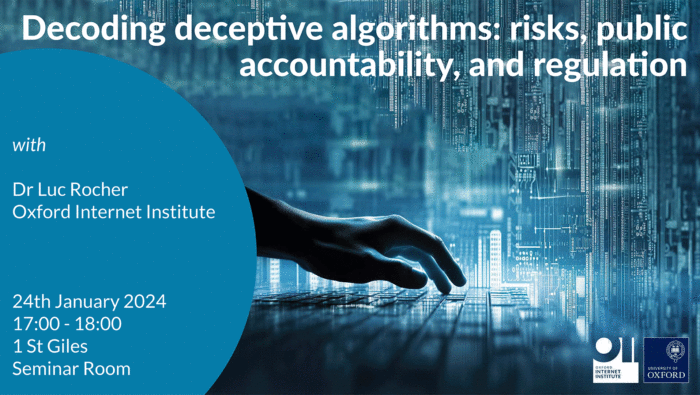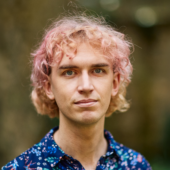17:00 - 18:00,
Wednesday 24 January, 2024
Seminar room, 1 St Giles

About
Dramatic claims about the potential and risks of Artificial Intelligence are now legion. Computers could soon replace most jobs or become sentient warlords. In this talk, we will take a step back and examine the inherent brittleness and vulnerabilities of algorithms and data-centric technologies. Luc Rocher, a researcher and lecturer at the Oxford Internet Institute, will present an overview of their research investigating harms in socio-technical systems infused with algorithms, using a human-centered computing lens. Their research in privacy & security helped uncover risks in privacy technologies, from de-identification to query-based algorithms and differential privacy . Their work on adversarial manipulation in algorithmic markets shows that pricing algorithms can be exploited by stronger competitors, leading to sustained collusion that harms consumers and may fall outside of current competition laws. They lead the Observatory of Anonymity (https://ooa.world), an interactive website in 89 countries where visitors can find out what makes them more vulnerable to re-identification and where researchers can test the anonymity of their research data.
Luc is the Programme Director of the DPhil in Social Data Science. Luc is a Junior Research Fellow at Kellogg College. They co-organise the Hot Topics in Privacy Enhancing Technologies workshop, and serve as Area Chair for the 2024 ACM Conference on Fairness, Accountability, and Transparency. Luc holds a PhD in Engineering from the Université catholique de Louvain (2019). They worked as a researcher at the Data Science Institute and Computational Privacy Group of Imperial College London, at the ENS de Lyon, and at the MIT Media Lab. Their work has been published in peer-reviewed journals and conferences (Nature Communications, Nature Machine Intelligence, USENIX Security) and covered in the press (New York Times, The Guardian, The Telegraph) as well as featured in BBC World Service, HBO’s Last Week Tonight with John Oliver, and France TV.
Attend Online
